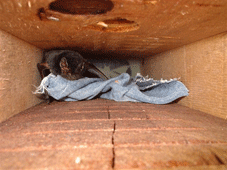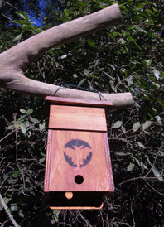Think of the critters
The extremes of weather are being felt all over Australia at present – bushfires and relentless high temperatures, floods and torrential rain. And it’s not just us humans being affected. Animals are having a hard time of it with their habitats destroyed and native animals dying in their thousands. You may find in the garden some wildlife you haven’t come across before, trying to escape either the heat or wet. So give them a thought as well!
In our part of the world we have been experiencing very heavy (seemingly relentless!) rain. Last week, my dog was trying to get to something at the back of a cupboard that holds gardening gear on our deck. I called her away and bent down to peer in – at first I thought it was a rat nesting in the hessian bags, but when a snake shot out horizontally at us I quickly realised I was mistaken. Yes, mistaken big time! The poor critter however was more scared of us – if possible – and scooted inside my study. The short story is that I called a snake catcher and he released it back up one of the trees in our yard. It was a Green Tree Snake – although often found near homes – the poor thing was finding the conditions too wet and was trying to find a dry spot.
So the lesson for me from this particular encounter was that wildlife is finding it extremely difficult as well in these conditions and we, while taking care, need to give our native wildlife great consideration and respect.
And this brings me back to the importance of providing habitats for animals to shelter and live. See my post on Going batty!. It’s often simple things that we can do that can make a difference, like providing nesting boxes for native wildlife such as possums, birds and micro bats. Installing the right type of box for the animal, bird or bat is important, so is ensuring that the box is appropriately hung from the tree rather than screwed or bolted to the trunk or a branch. Nails and screws can damage trees. To find out more about wildlife boxes read this article on bats at Green Harvest.
Needless to say, but I will anyway – if you find injured wildlife call 1300 ANIMAL to contact RSPCA Wildlife Emergency Hotline or keep your local WILVO or wildlife rescue organisation contact number close at hand. Finally – leave the snakes to the experts!
Posted in Sustainability






Leave a Reply